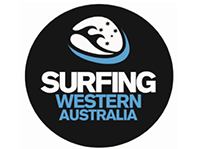WORDS BY RAELEY JONES
With abundant sunshine, shallow shimmering lagoons and diverse marine life, it is no secret that the Maldives is considered one of the very best destinations in the world for snorkelling and diving. But imagine having access to your own Marine Biologist to take you on a private snorkelling tour, guiding you to the best spots to see vibrant coral reefs bursting with marine life, from sea turtles through to black tip reef sharks and manta rays. With its commitment to sustainable tourism, that is exactly what you will find at Club Med Kani, which is also known for its luxurious accommodation. and over-water villas.
We caught up with Club Med Kani Marine Biologist, Sophie Preud’Homme, to tell us about what it is like to work on the island, the resort’s sustainability efforts and conservation projects, and why it is the ultimate island holiday destination for families looking to reconnect and explore the ocean like never before.
You’ve created your life around the ocean, what drew you to it in the first place and how did you become a marine biologist with Club Med Kani?
I didn’t grow up by the beach in Belgium, but I always felt passionate about the ocean. When I was 20-year-old, I did a conservation internship in South Africa for a month. That’s where I learned to dive and really discovered the ocean. We studied turtles, rays and sharks, which inspired me to study marine biology at the University of Liege in Belgium.
Now, working as a Marine Biologist with Club Med Kani, I meet a lot of people and it allows me to share my passion for marine life with them.
What makes Club Med Kani so unique?
I think, for my part, what makes it so unique is the wonderful diversity of marine life. You can find 25 percent of the whole marine biodiversity in the Maldives, including turtles, sharks, and rays, and for many of our guests, seeing these creatures up close is a major highlight.
The resort offers a unique snorkelling tour, guided by one of our marine biologists, to not only provide a better experience for our guests to enjoy these close-up encounters but to help protect the marine and natural environments through education.

Can you tell us about some of the sustainability efforts and conservation projects being undertaken at Club Med Kani to protect the environment?
Club Med has constructed an artificial reef at the resort to help protect marine diversity. They also invite guests to create their very own coral habitat for marine life. They can choose the size of the coral frame and attach coral of their choice, which is a very good initiative.
The island itself is GreenGlobe certified, which is the international standard for sustainable tourism. We monitor the use of energy and water and have a Food Waste Management system, which helps to reduce the food waste. Bye Bye Plastics is another initiative at Club Med, to try to reduce the use of single-used plastic as much as possible.
Biodiversity Panels and an ecogesture commitment are also displayed around the island, so guests can learn more about local flora and fauna and things they can and cannot do around our beautiful island.
In Club Med Finolhu, we also host conferences to educate our guests and organise snorkelling clean ups.
I understand kids staying at Club Med Kani can get involved in marine education and conservation too. Can you tell us a bit about that?
Every week, kids join the Mini Club for a coral plantation activity. I show them how to plant the corals on a frame out of the water and then allow them to try it by themselves, which they love! I explain what coral is, what we can do to preserve them and how coral plantations are important to the marine life.
What does a typical day as a marine biologist at Club Med Kani look like?
It depends on the day, but I usually take guests on Mobireef snorkel tours twice a day. After an explanation about what we’re going to see and how we can snorkel without affecting the marine life, I go in the water with guests and show them the artificial frames. The tour lasts around one hour.
On Wednesday morning, I go to Finolhu to do coral planting and speak about marine life at the conference. I also talk also about the Maldives in general, and guests can ask me questions about all the marine life. And one afternoon a week, I carry out maintenance of the Mobireef, where I replant new corals on frames, clean the algae out and fix what has been broken.
As surfers and ocean lovers ourselves, can you give our members some tips on how to live more sustainably in our everyday lives?
Concerning the ocean, I would say don’t touch or take anything. Everything that is in the ocean belongs in the ocean. If you see any waste just take it, and don’t put sunscreen on just before going in the ocean. And as surfers, please take care of the reefs.
On land, basic things people can do include turning off the lights or any plugged in items and reduce what you use and recycle. Also, when deciding where to go for your next holiday lean towards destinations and accommodation that are eco-friendly and have a sustainable approach to tourism. We must be proactive if we want to save the planet.
For more information about Club Med Kani click here.
Events


















